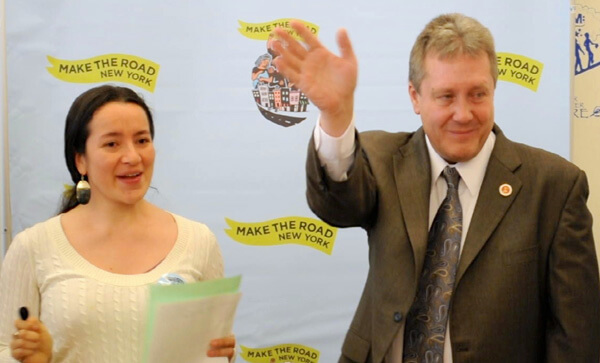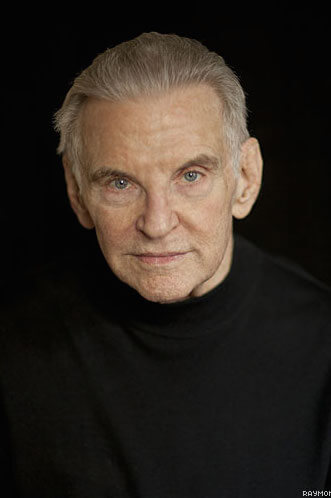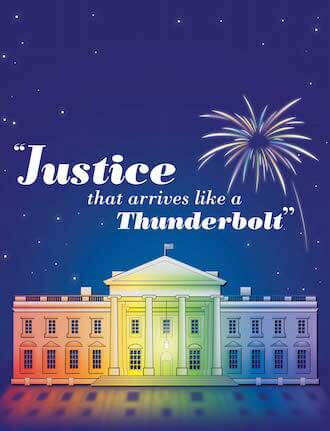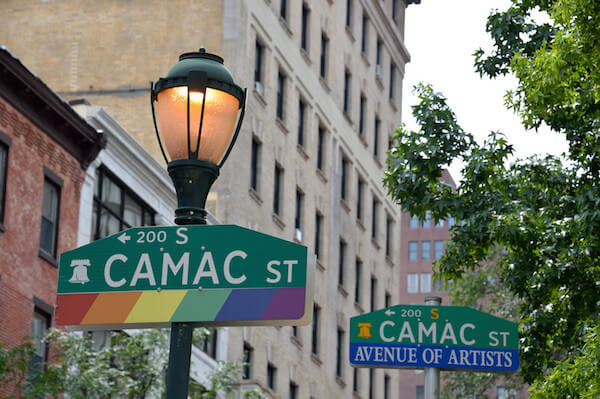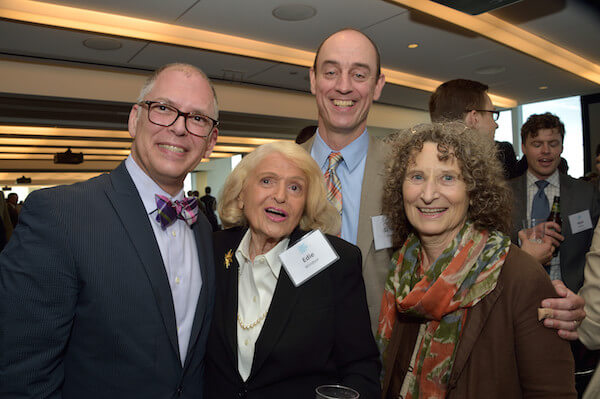Make the Road New York's Ana María Archila and Queens City Councilman Daniel Dromm.
In recent weeks, two issues have dominated the news: same-sex marriage and immigration reform. Too often, the media and politicians present these topics as separate human rights struggles. In truth, they are intimately linked to one another, and the fight for comprehensive immigration reform offers a critical opportunity for advancing LGBTQ equality by including same-sex couples.
Take the story of Pablo and Santiago, a couple who participated in a recent LGBTQ Immigration Forum organized by Make the Road New York and Immigration Equality. Santiago, a US citizen, fell deeply in love with Pablo while visiting Venezuela in the 1980s. Santiago asked Pablo to come with him to New York City, and 26 years later they are still together.
Two years ago, Pablo and Santiago got married, but Pablo is still undocumented, because our current immigration laws do not recognize his same-sex marriage. Simply because Santiago is a man, he cannot sponsor his loving husband to become a US citizen.
This story is tragic, but it is also fixable if Congress includes same-sex couples in comprehensive immigration reform. This simple legislative fix could improve the lives of hundreds of thousands of LGBTQ people. According to a recent study published by the Center for American Progress and the Williams Institute, 267, 000 of the 11 million undocumented people living in this country identify as LGBTQ. And more than 32,000 immigrants share their lives with US citizens who cannot sponsor them because their marriage or union is not recognized by the federal government.
This is also an increasingly important issue for the Latino community and its growing electorate. Among undocumented LGBTQ immigrants, 71 percent are Latino. Latinos turned out to vote in huge numbers in 2012 because they want to see comprehensive immigration reform happen this year. While many people assume that Latinos oppose same-sex marriage, a recent poll of Latino voters conducted by Immigration Equality shows that 60 percent of them support inclusion of same-sex families in comprehensive immigration reform.
In short, this is an issue that resonates with Latinos and immigrants, and members of Congress should heed the voices of LGBTQ immigrants and their allies as they seek to reform our broken immigration system.
In order to have a fully LGBTQ inclusive and comprehensive immigration reform, we need legislation that: includes a path to full citizenship for the 11 million undocumented immigrants in this country; preserves and prioritizes family unity for all, including same-sex couples; protects low-wage workers; ensures humane enforcement of immigration laws, including due process rights and reforms to immigration detention; lifts the one-year filing deadline for asylum; and no longer makes low-level offenses, such as prostitution-related charges, an obstacle to a path to citizenship.
Up until now, too many of our congressional leaders — even those who have publicly supported same-sex marriage — have been silent about including same-sex couples when discussing immigration reform. To these elected officials, immigration and marriage equality are separate issues. But, for the myriad LGBTQ immigrants who cannot normalize their immigration status because of their sexual orientation, the failure to see how our broken immigration system disparately affects LGBTQ people has grave consequences.
For LGBTQ immigrants, a path to citizenship and recognition of their families would mean no longer having to live in the shadows –– and instead being able to live alongside their loved ones. We need congressional leadership to include LGBTQ immigrants in any comprehensive immigration reform bill. Immigration reform is an LGBTQ issue, a racial justice issue, and an economic rights issue.
The demand from LGBTQ immigrants and their allies to Congress is simple: do not push our communities back in the closet. Instead, pass a fully inclusive comprehensive immigration reform bill.
City Councilman Daniel Dromm represents New York City’s 25th District in Queens. Ana María Archila is the co-executive director of Make the Road New York, a grassroots immigrants’ and LGBTQ rights organization.

